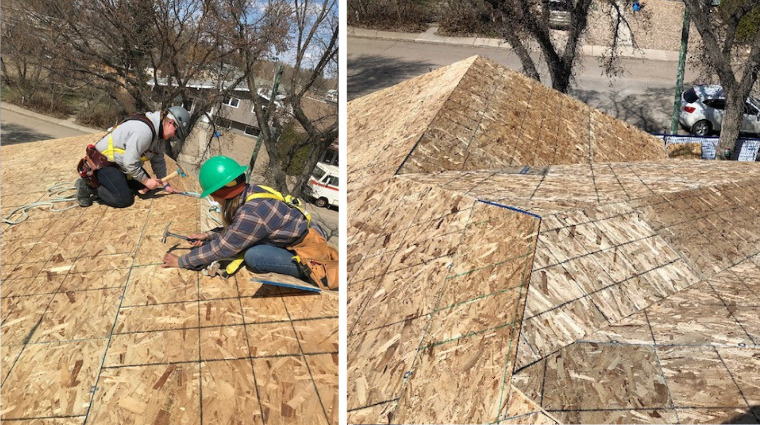
Community building has always been important for Saskatchewan Polytechnic. This year, three students from the Moose Jaw Carpentry certificate program took that principle to heart when they signed on to do their work-integrated learning by building homes for families in need alongside Habitat for Humanity Saskatchewan.
“Their last two weeks of training is a work-term,” explained carpentry instructor Craig Hyatt. “Usually, they just find a company that’s willing to take them on for that week, but with the job market this year (due to the COVID-19 pandemic) it was a little tighter, so we were looking for a few different options and Habitat came up in some of those discussions.”
It turned out to be perfect timing for Habitat, who, according to Donna Watts, Habitat’s chapter lead, were already discussing a partnership with Sask Polytech, but were also dealing with lagging build schedules caused by pandemic restrictions on volunteers.
Things took off quickly from there. With seven months of classroom learning behind them, once the students started on the worksite, they quickly began taking on some big tasks—which isn’t always possible on the more traditional job sites--and they even managed to leave the project ahead of schedule.
“It made such a big difference for us. Our construction manager could not stop raving about how great it was,” Watts said. “The enthusiasm and the knowledge they brought was amazing. These three students, over the course of a week, basically put them ahead by a month’s worth of work.”
Though training on the Habitat worksite will not end in a job offer—like it might for students doing their work-terms with construction companies—it does offer students the opportunity to hone their skills while doing positive work within the community.
“We want them to know what a tremendous difference they are making in these families lives,” Watts said. “And Habitat for Humanity depends so much on donations and volunteers so that we can build these houses at a lower cost … I really think (this partnership) complements the skills these students are learning in class.”
Hyatt agrees, describing the partnership between Sask Polytech and Habitat for Humanity as a “win-win,” noting he and his fellow instructors were so pleased with the amount of this hands-on learning the students were experiencing on the Habitat job site that they are hoping the partnership will be able to continue.
“Habitat did a great job of enabling our students to experience the whole process of building a house,” Hyatt finished. “I think it also gives them a sense of pride. They get a chance to see all the good it does in the community and learn the work isn’t just valuable because it can make money—but that those skills can be used to help people too.”

